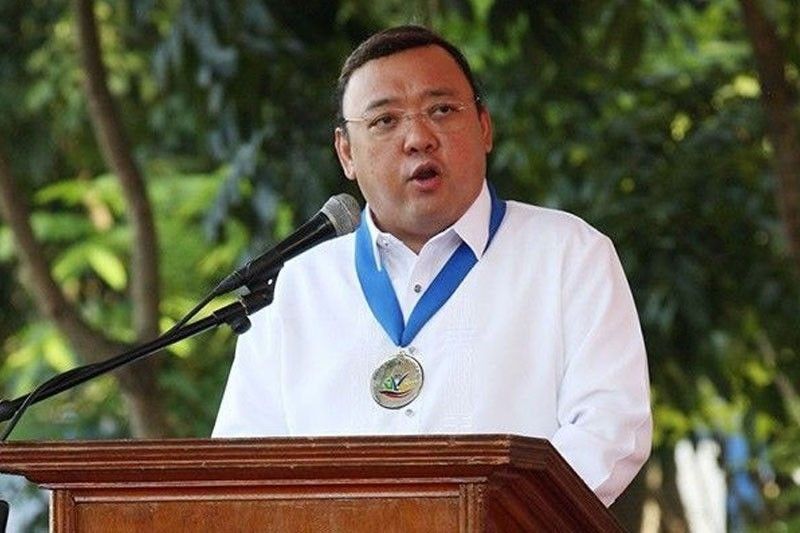Palace: Government pandemic management excellent

MANILA, Philippines — While COVID-19 infections and deaths continue to rise, Malacañang yesterday claimed that the government did an “excellent” job in containing the pandemic and expressed optimism that it can meet its goal to vaccinate at least 50 million people this year.
Presidential spokesman Harry Roque said the Philippines, which has logged about 594,000 infections with more than 12,000 deaths, is still better off than other countries in terms of the number of persons who caught the virus.
“We were excellent. We were able to control the spread of the disease especially if we compare ourselves to the wealthier countries with more modern hospitals,” Roque said at a press briefing.
“So we did a very good job given that... we lack health facilities and we lack funds for the health sector,” he added.
Officials claimed that the Duterte administration has been decisive in dealing with the pandemic, which has dragged the economy into a recession or two consecutive quarters of contraction. Some critics, however, have argued that the government’s initial hesitation to impose travel restrictions on Chinese citizens resulted in a rapid spread of the virus.
When reminded that the COVID-19 pandemic has left thousands of people dead and has caused hunger and unemployment, Roque replied: “We were excellent in managing it. Unfortunately, while there is no vaccine, many will be infected and there will be deaths.”
“But we have limited deaths to around 12,000. Compare that with the United States... (latest figures can show) hundreds of thousands of deaths in countries that are more economically wealthy and with more developed health sectors,” he added.
The Palace spokesman noted that the US already has more than 28 million cases while both India and Brazil have recorded more than 11 million infections.
Roque said the government imposed a lockdown or enhanced community quarantine just in time and that it has improved the country’s healthcare capacity.
“(Our case fatality rate) is 2.11 percent, obviously smaller compared to countries that are wealthier and more developed than us. I hope that is clear. Let’s give credit where it is due,” he added.
At the same press briefing, Roque said the administration’s goal to inoculate at least 50 million people by the end of the year is still attainable. “We can achieve that if the vaccines arrive,” he said.
Roque noted that more than one million doses of Sinovac and AstraZeneca jabs were delivered last week. The government is expecting the arrival of 5.1 million COVID-19 doses in the first quarter and another 26 million doses by the second quarter. About 50 million to 60 million doses may be delivered in the Philippines within the second half.
“We are confident that once the vaccines arrive, we can meet the target. Why? We are slow for now because we gave health workers the choice to refuse... With regard to mass rollout, they won’t be delivered in hospitals. They will be brought to LGUs (local government units)... we expect it to be faster,” he said.
A total of 29,266 persons have been vaccinated as of March 7, according to health department data.
At the Bataan General Hospital and Medical Center where he witnessed the start of inoculation of hospital officials, Vivencio Dizon – deputy chief implementer of the National Task Force against COVID-19 – also said the government is targeting vaccination of 50 million of the population.
“We continuously do interventions, preventions, testing, tracing, isolation and treatment. But simultaneously we need additional protection and that’s vaccination,” he said in Filipino. “We need to roll out vaccination fast especially for health care workers so that they can be protected when dealing with COVID patients.” – Ric Sapnu
- Latest
- Trending

































